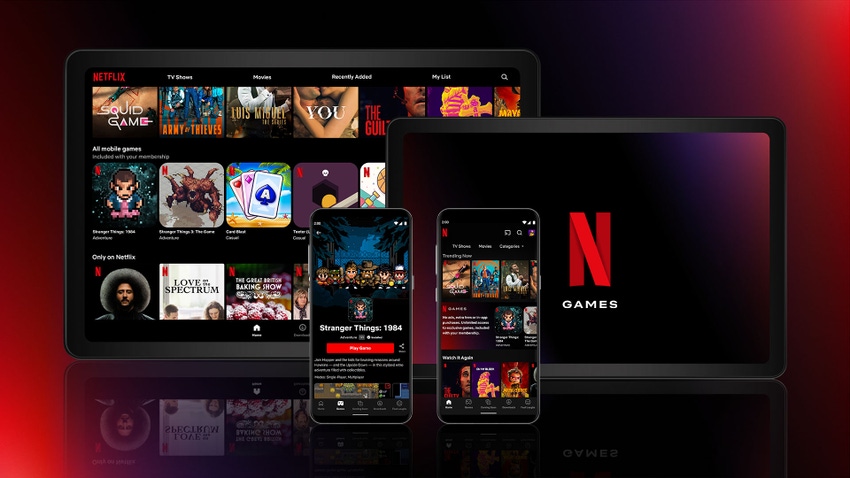Video streaming giant Netflix is now bundling mobile games in its offer, starting with a small number of titles and thus limited disruption to the gaming industry’s business model.
November 3, 2021

Video streaming giant Netflix is now bundling mobile games in its offer, starting with a small number of titles and thus limited disruption to the gaming industry’s business model.
The company announced that Netflix games on mobile has been launched in all the markets it offers streaming service. A new row called “All mobile games” will appear on the main menu when a user logs into the Netflix app on an Android phone or tablet (pictured). Five titles supplied by three studios are available at launch. Netflix does not say when or if mobile games will come to its iOS apps.
The new offer was announced at a time when Netflix’s subs growth has slowed down recently (despite a rebound in the latest quarter). However, given the modest size of what is being offered, this is far from a full-blown challenge to the specialised mobile gaming services. Instead, it is “basically a nice-to-have for Netflix subscribers that like to play games,” Nitesh Patel, Director of Wireless Media Strategies at Strategy Analytics, a research firm, told Telecoms.com. “For now, it’s all about subscriber retention – particularly as subs growth stagnates,” he added.
What sets the games inside Netflix apart from games an Android user can download from the Play Store directly, is there will be no ads and no in-app purchase. This is both in line with Netflix’s user experience principle and is a direct competition to other no-ads no-IAP subscription offers like Google Play Pass and Apple Arcade. What’s different is while Play Pass and Arcade will charge an additional subscription fee, Netflix games are included in the subscriber’s monthly payment.
The trend to do away with ads and IAP by subscription services runs in direct conflict with the dominant business model adopted by many game developers, especially the long-tail small studios. Using the so-called “freemium” model, they bring their titles to Play Store and App Store for free downloads, then rely on in-app purchase for most of their revenues, supplemented by running ads.
However, how big the disruptive effect can get is debatable. Nitesh Patel is sceptical. “It is by no means the end of the free-to-play model,” Patel said. “Due to economics, it won’t really be possible for Netflix to offer the same selection of titles available through Google Play or Apple App Store. Without a big upfront payment from Netflix, or Netflix funding much of the game development, it won’t be sufficiently lucrative for game publishers to make new titles available via the subscription / bundled approach,” he added.
Netflix games can be downloaded and played offline, similar to many of its TV episodes and films. The titles can adapt to the default language set up by the Netflix subscriber. At the moment mobile games are limited to adult users only. Netliex does not say if the policy will change or if child-friendly titles will be available in the future.
About the Author(s)
You May Also Like








.png?width=300&auto=webp&quality=80&disable=upscale)


_1.jpg?width=300&auto=webp&quality=80&disable=upscale)


.png?width=800&auto=webp&quality=80&disable=upscale)